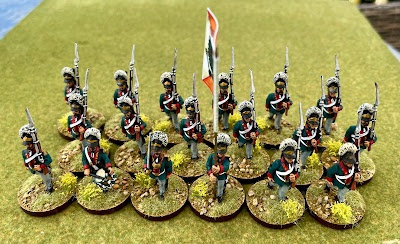This is Thomas De Waal's introduction to the Caucasus region, specifically the South Caucasus, or what the Russians called the Transcaucasus. I picked this up in an Oxfam bookshop during my football travels, thinking I ought to know more about the background of current events in Georgia, Armenia, and Azerbaijan. These three modern countries cover the region south of the mountains.
The author starts by describing the region, dominated by the Greater Caucasus mountain chain and the highest in Europe. There is an iconic WW2 photo of a Gebirgsjager on the highest point, Mount Elbrus. The region also has the greatest density of distinct languages anywhere on Earth. Significantly for me, it is the home of wine, reflecting that not all the area is mountainous.
While this book focuses on 20th-century history, the earlier periods are not ignored. This includes the various religions that influenced the region following invasions. The Ottoman and Persian Empires dominated the area until the Russians arrived, although the nations all had periods of independence. Peter the Great started the imperialist Russian period. Still, Catherine the Great, with her arch-imperialist Potemkin, expanded the Empire to the shores of the Black Sea and the Georgian capital of Tiflis (Tbilisi today).
In my last post, I covered the later Russian conflicts with Persia (or, as they would have said, Iran). This has kicked off a new wargame project and further reading, of which more will be discussed in later posts. This was the equivalent of the Wild West for Russian officers who called it South Siberia.
The Soviet period was one of many contradictions, from utopian class liberation to Stalinist authoritarianism. The author points to the ways the Soviets behaved that were different from those of the Tsarist period. Stalin was, of course, a Georgian, although he only took a slight interest in the region.
The background of modern conflicts is explained in detail. The breakaway parts of Georgia (South Ossetia and Abkhazia) and the wars fought between Azerbaijan and Armenia over Nagorno-Karabakh. There are plenty of maps and some illustrations. Overall, this book is an excellent introduction and a warm-up for more detailed reading on the Napoleonic period in particular.
While not specifically for these conflicts, I have been building some Potemkin period units in 28mm, with their distinctive headgear. This is from the North Star range. I have 36 infantry, enough for two Black Powder or three Rebels & Patriots units. Just as well as, they now appear to be out of stock. I can use my irregular Cossacks for the early period, but I picked up a couple of packs of Foundry Don Cossacks for the Napoleonic Wars.




Interesting book. Lots of scope for small scale actions in the Tsarist era!
ReplyDeleteOr in the RCW period. Went to Tbilisi once. Georgian seems a baffling language. Couldn't even get a grasp on basic words - there's nothing familiar that gives you a grip. Beautiful place and food though.
I have never been to any of the countries in the region, but Georgia would be my first choice. A few pals went when Scotland played there some years ago. Given the news, it may take a bit of domestic persuasion to add it to this year's trips!
ReplyDeleteLesley Blanch wrote “The Sabres of Paradise: Conquest and Vengeance in the Caucasus” in which Shamyl features prominently. It might be worth a look for background information with your latest project.
ReplyDeleteCheers,
Geoff
I certainly read a history of Shamyl, but I can't remember if it was this one. I am trying to limit this project to the South Caucasus, although famous last words. I remember chatting to a Chechen in a Riga hotel of all places. He was impressed I had even heard of him!
Delete